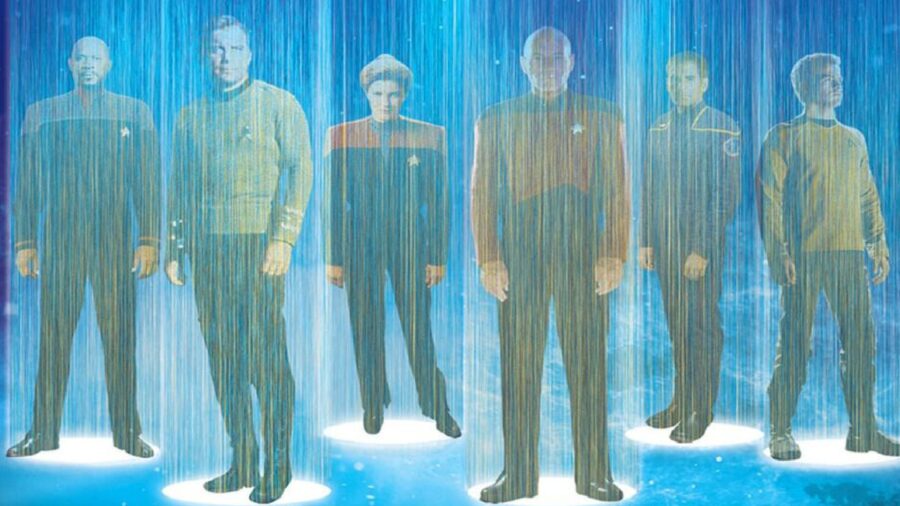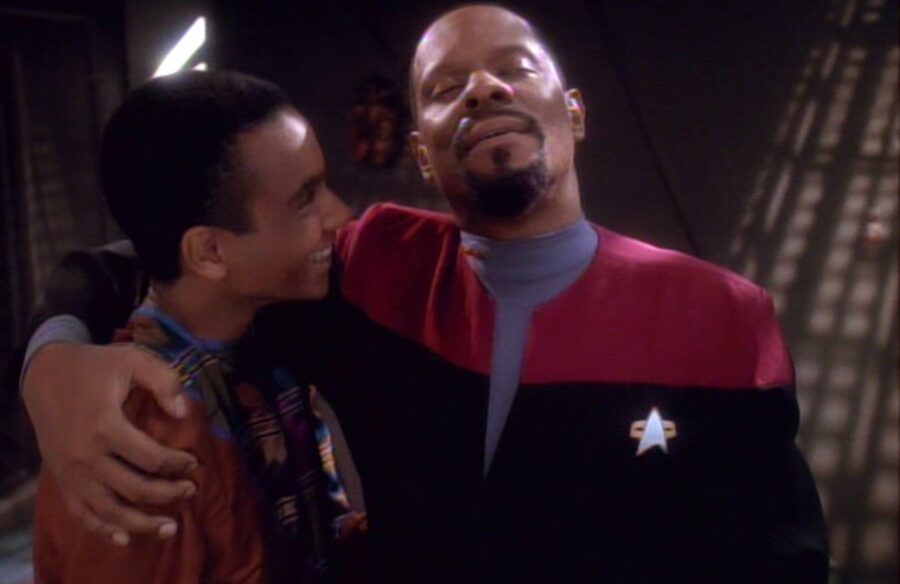Star Trek Hero’s Best Character Trait Didn’t Come From The Writers

One of the many reasons we love Star Trek: Deep Space Nine so much is the warm and loving relationship between Captain Sisko and his son, Jake. They are portrayed as close very early on, and we got to see the characters grow closer even as we saw Jake actor Cirroc Lofton grow up in front of us onscreen.
As for Sisko actor Avery Brooks, he credits the early episode “Babel” for establishing the physical affection between father and son, but he insists this character trait wasn’t created by the writers.
In order for you to fully understand the knowledge Brooks dropped on the fandom, we need to review the Star Trek episode in question and why it was so significant for Benjamin Sisko and Jake Sisko. In the episode “Babel,” a bizarre replicator accident begins spreading infectious aphasia throughout the station. The aphasia affects everyone’s ability to communicate, and this causes about as much chaos as you might imagine.
At one point in this wild Star Trek episode, Commander Sisko visits Jake in the infirmary because his son has been infected by the virus. Because they cannot communicate as usual, the elder Sisko cannot use words to comfort his frightened son. Instead, he shows him the physical affection of a very attentive father, including holding his head and warmly wrapping an arm around him.
It is, frankly, a perfect scene for establishing the kind of close relationship these two characters have. Because it does this so well and is so emotionally affecting, you might think the physical closeness of these characters was something dictated by the writers.
In talking about this Star Trek scene between Ben Sisko and Jake Sisko, Brooks claims that the physical affection “wasn’t a thematic element.”
According to Avery Brooks, however, this is something that he personally brought to the show, right down to the honest emotional expression.
In talking about this Star Trek scene between Ben Sisko and Jake Sisko, Brooks claims that the physical affection “wasn’t a thematic element.” He said “I don’t have any trouble being physical with my children,” and he continued, “That’s a part of my nature, as opposed to something they wrote about Sisko and Jake.”
The physical affection between the father and son helped serve as the emotional core of Deep Space Nine, and it also led to “The Visitor,” one of the most tear-jerking hours of television ever created.
He then told a cute anecdote about how the affection between the two of them wasn’t something that was limited to the scenes they shot together. “The first day I met Cirroc, I hugged him,” he said, “And I hug him every time I see him.”

This sweet story helps underscore just how seriously Brooks took the onscreen portrayal of a father figure. That seriousness extended to the very last episode: it was at the actor’s suggestion that the Star Trek: Deep Space Nine series finale includes a line suggesting that Captain Sisko might return from the Celestial Temple to rejoin his pregnant wife as well as Jake.
We aren’t surprised one bit that we’re still discovering all of the different ways Avery Brooks helped make Deep Space Nine the best series in Tek history.
In short, he didn’t want to contribute to a TV show that ended with a Black man abandoning his beloved son and pregnant wife, no matter the weird sci-fi context surrounding Sisko’s disappearance.
The physical affection between the father and son helped serve as the emotional core of Deep Space Nine, and it also led to “The Visitor,” one of the most tear-jerking hours of television ever created.
That level of affection is mostly absent from most other Star Trek series and science fiction as a whole, and those shows are that much poorer for its absence. We aren’t surprised one bit that we’re still discovering all of the different ways Avery Brooks helped make Deep Space Nine the best series in Tek history.












